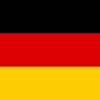United States: Debate restoration initiatives
Facing their toughest-ever nationwide tests of academic freedom, some US institutions are slowly trying to move past questions of intrusive donors and violent protests by teaching more directly about tolerance.
While many of the nation’s campuses remain convulsed by demonstrations, threats, and arrests relating to the Israel-Hamas conflict, several of them — including Harvard University, Dartmouth College, New York University and the University of Virginia — have stepped forward with educational programmes aimed at students, faculty and staff.
Virginia plans a series of public presentations by experts on Middle East politics and global conflicts. Its aim is to “encourage the free sharing of beliefs and ideas, regardless of political leaning”, says provost Ian Baucom.
Harvard’s president, Claudine Gay, promises education and training programmes aimed at “protecting all members of our community”, although she puts particular emphasis on confronting “antisemitism in daily life”. NYU is creating a Center for the Study of Antisemitism, while Dartmouth started educational forums on the conflict almost immediately after the initial Hamas attack.
Signs of US higher education remembering and prioritising its teaching role in the face of flaring Israeli-Palestinian violence remain too rare, says Suzanne Nossel, chief executive of PEN America, a writers’ group that has become a leading voice for campus free speech protections. “That has to be a much more deliberate, intentional part of the university experience, because we’re seeing that it’s really not working as is,” says Nossel.
The Biden administration also tried to calm the situation by formally warning college and university leaders nationwide that they have a legal obligation to provide all students with an educational environment free from discrimination.

















Add comment